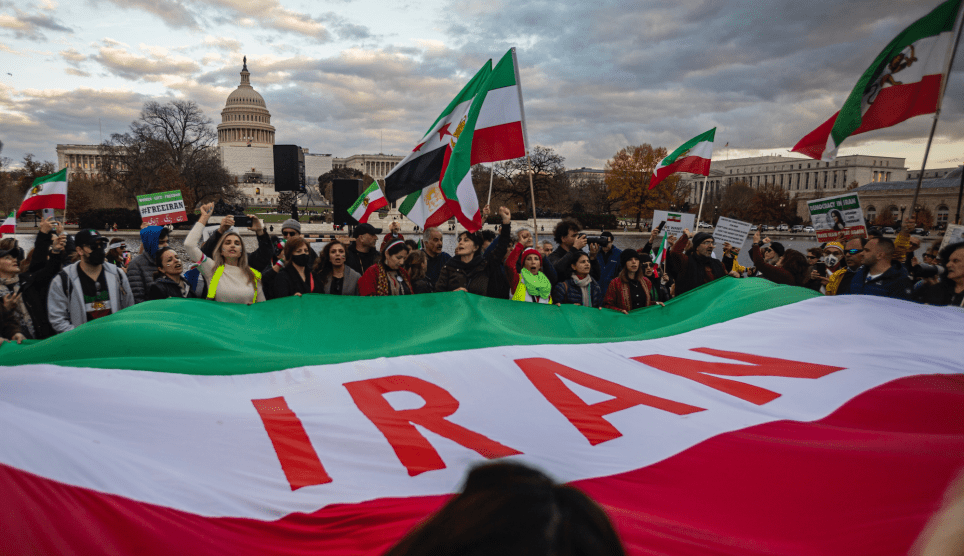
December 3, 2022: Protesters wave a non-sectional Iranian flag on Capitol Hill. Protesters marched for an 11th week in a row in Washington, D.C. to express solidarity with the ongoing resistance movement in Iran. Kyle Anderson/Sipa USA/AP
An Iranian official says the Islamic Republic has abolished its notorious morality police. The decision follows more than two months of protests ignited by the death of Masha Amini, the 22-year-old woman who was arrested and reportedly beaten while under police custody after she allegedly violated the country’s Islamic dress laws.
The move was announced by the country’s attorney general, Mohammad Jafar Montazeri, during an appearance on state television late Saturday but has not yet been confirmed by other authorities. Questions also remain over what the change would mean for Iranian law, including the decades-old requirement that women wear head coverings. According to the New York Times, Montazeri “went on to suggest that the judiciary would still enforce restrictions on ‘social behavior.'”
Amini’s death quickly sparked some of the largest protests seen in Iran in decades, with many calling for the end of the Islamic Republic. Struggling to quell the demonstrations both at home and abroad, Iran’s security forces have killed at least 326 people since the protests first erupted, a ghastly figure that an Iranian general recently appeared to confirm. Amini’s death and the ongoing brutality against demonstrators prompted widespread outrage around the world and have featured prominently in the protests at the current World Cup events in Qatar.
Last week, an Iranian man was reportedly shot dead after being seen honking in celebration over the country’s exit from the tournament.

















